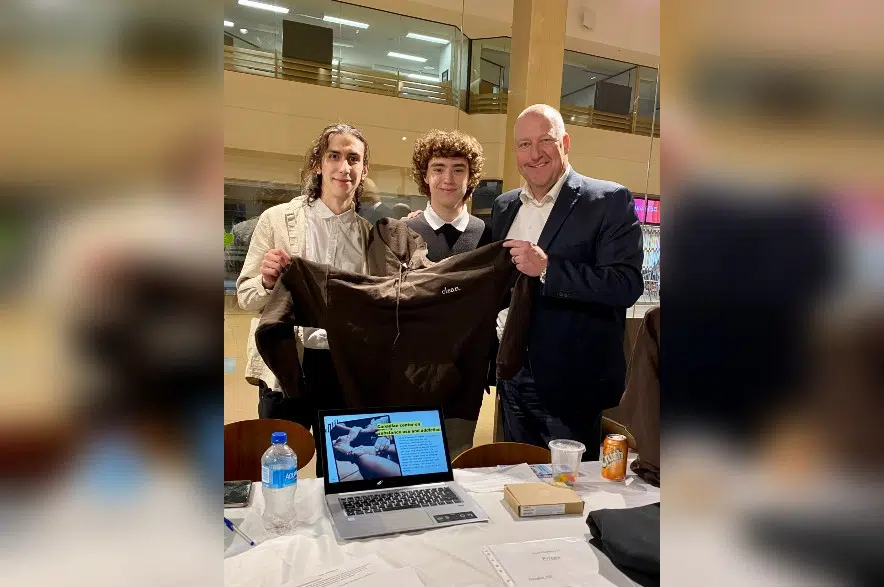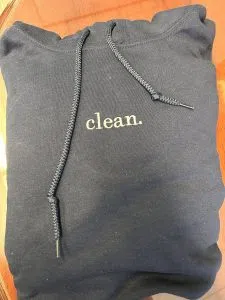The stigma surrounding drug addictions makes it harder for those struggling with drug use to reach out for help, and a pair of Grade 12 students at Miller Comprehensive Catholic High School are trying to change that.
Peter Ashayib and Robbie Lynch started a business and developed a line of bunnyhugs to promote drug addiction awareness after witnessing some of their friends struggling with drug use.
They say they came up with the idea during their business class and chose the design because they wanted the bunnyhug to look sleek and modern without taking away from the meaning behind it.
“We’re donating (the proceeds) to the non-profit organization Street Culture (Project),” Lynch said.
More specifically, the money will be going to support the organization’s youth mentorship program, which focuses on matching young people — who are referred to the organization by the Ministry of Social Services — with a mentor so they can talk about what’s troubling them, Lynch adds.
Instead of donating money alone, the students will also be donating $200 worth of Tim Hortons gift cards.
“We know that we’re going to impact 20 people’s lives,” Lynch said. “They’re going to get a free meal (when they speak with a mentor).”
Although the bunnyhugs are available in many different colours to attract more customers, all of them prominently feature the word “clean.”
“’ Clean’ has a lot of meanings,” Lynch said. “We chose it, obviously, to get clean from drugs. Our slogan is ‘Think, live, be clean,’ so if (someone’s) thinking clean, (they’re) going to live clean and then (they’re) going to be clean.”
He went on to say “clean” is also a slang word that means something looks good.
The students say they’re proud of what they accomplished.
“It’s very humbling and (we’re happy) that we get to support our community and be a part of giving back and making a difference in the world,” Ashayib said.
Their new business venture also got the attention of Regina Police Chief Evan Bray, who says he couldn’t help but ask for one in his size and place an order.
“We know that the key to success to substance-use disorders is getting help for people,” Bray said. “I, unfortunately, talk about overdoses in our community on almost a daily basis (and) I was really drawn to these young fellows who put this concept together.”
Bray said drug addictions are not attached to any specific demographic, but are a problem throughout the city that needs to be talked about.
“As a police service, we focus heavily on restricting illicit drugs and illegal drugs from coming into our community,” Bray added. “We also have to help those with an addiction. If we can get them healthy, then there isn’t a market for drugs to be sold.”
As for the students, they plan on continuing the company even after they complete their entrepreneurship course.
“We took Entrepreneurship 30 and then in the first half of it, we learned all the terminology in the business world and then we had the opportunity to create a business and try to make some money from it,” Lynch said.








